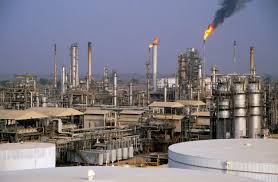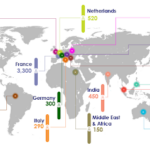

The former National Operations Controller of the Independent Petroleum Marketers Association of Nigeria (IPMAN), Mr Mike Osatuyi, has commended President Bola Tinubu for approving a 15 per cent import duty on petrol and diesel.
In an interview with Newsmen in Lagos on Sunday, Osatuyi said that the policy would protect local refineries and attract new investments into the sector.
NAN reports that on Oct. 29, President Bola Tinubu approved a 15 per cent import tariff on petrol and diesel, a policy expected to raise the landing cost of imported fuel.
He added that it would ensure the sustainability of both existing and upcoming private refineries, encourage modular refinery operators, and attract foreign investors.
Osatuyi added that the policy would discourage importation of cheaper refined products, improve competition among marketers, and ultimately benefit Nigerians.
“The Federal, State and Local Governments will also gain from increased revenue, job creation, foreign exchange savings, and the stabilization of the naira,” Osatuyi noted.
According to him, the import duty demonstrates the Tinubu administration’s commitment to protecting domestic investment in the downstream petroleum sector.
He described the Dangote Refinery in Lekki, Lagos, as a “national asset and Nigeria’s energy security facility,” commending its role in reducing dependence on imported petroleum products.
Osatuyi criticized the prolonged non-performance of government-owned refineries like Port Harcourt, Warri, and Kaduna, saying that over ₦11 trillion had been spent between 2010 and 2023 on maintenance and rehabilitation without results.
“It is unpatriotic that attempts to privatize these refineries in 2007 were resisted, costing the nation over ₦264 billion annually in maintenance with zero output,” he said.
He emphasised that the 15 per cent import duty would not primarily serve as a revenue measure but as a protective policy to ensure local refineries remain viable against imported products.
Osatuyi highlighted the growth of Nigeria’s refining capacity, citing the Dangote Refinery’s current 650,000 barrels per day (bpd) capacity—making it the seventh largest in the world—and its planned expansion to 1.4 million bpd, which would make it the largest globally.
He also mentioned other upcoming projects such as the BUA Refinery in Akwa Ibom State with 200,000 bpd capacity and several modular refineries including OPAC, Duport, Niger Delta (Aradel Holdings), Edo, Waltersmith, Azikel, Ogbele, and Abia refineries, with a combined capacity of about 150,000 bpd.
“A responsible government must protect these massive private investments worth billions of dollars,” Osatuyi stated.
He further explained that fears of product scarcity were unfounded, as Dangote Refinery alone could meet national demand and still have excess for export.
The refinery, he said, has a storage capacity of over 4.6 billion litres, 200 loading gantries, and can produce 57 million litres of petrol, 25 million litres of diesel, and 20 million litres of jet fuel daily when fully operational.
Osatuyi urged local refiners to act responsibly and not exploit the import duty policy to make excessive profits.
Stressing that regulators such as the Nigerian Midstream and Downstream Petroleum Regulatory Authority (NMDPRA) must ensure fair pricing and market stability.
He called for vigilance to prevent abuse of the import duty protection, fuel scarcity, or black-market activities.
He noted that the Federal Government’s new centralised revenue collection system, effective January 2026, would ensure compliance.
The former IPMAN official also applauded the President’s directive allowing local refineries to purchase crude oil in Naira, describing it as a major step in stabilising operations and reducing pressure on foreign exchange.
“President Tinubu has again demonstrated courage and patriotism by prioritising national interest over political considerations.
“His decision to impose a 15 per cent import duty on petrol and diesel is a bold step to protect Nigeria’s economic sovereignty,” he said.
The post 15% duty on petroleum products will protect local refineries, attract investors — Osatuyi appeared first on Vanguard News.





